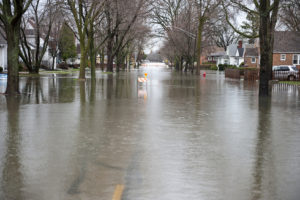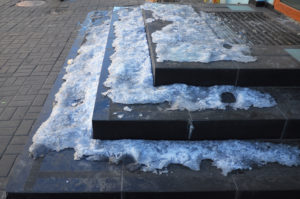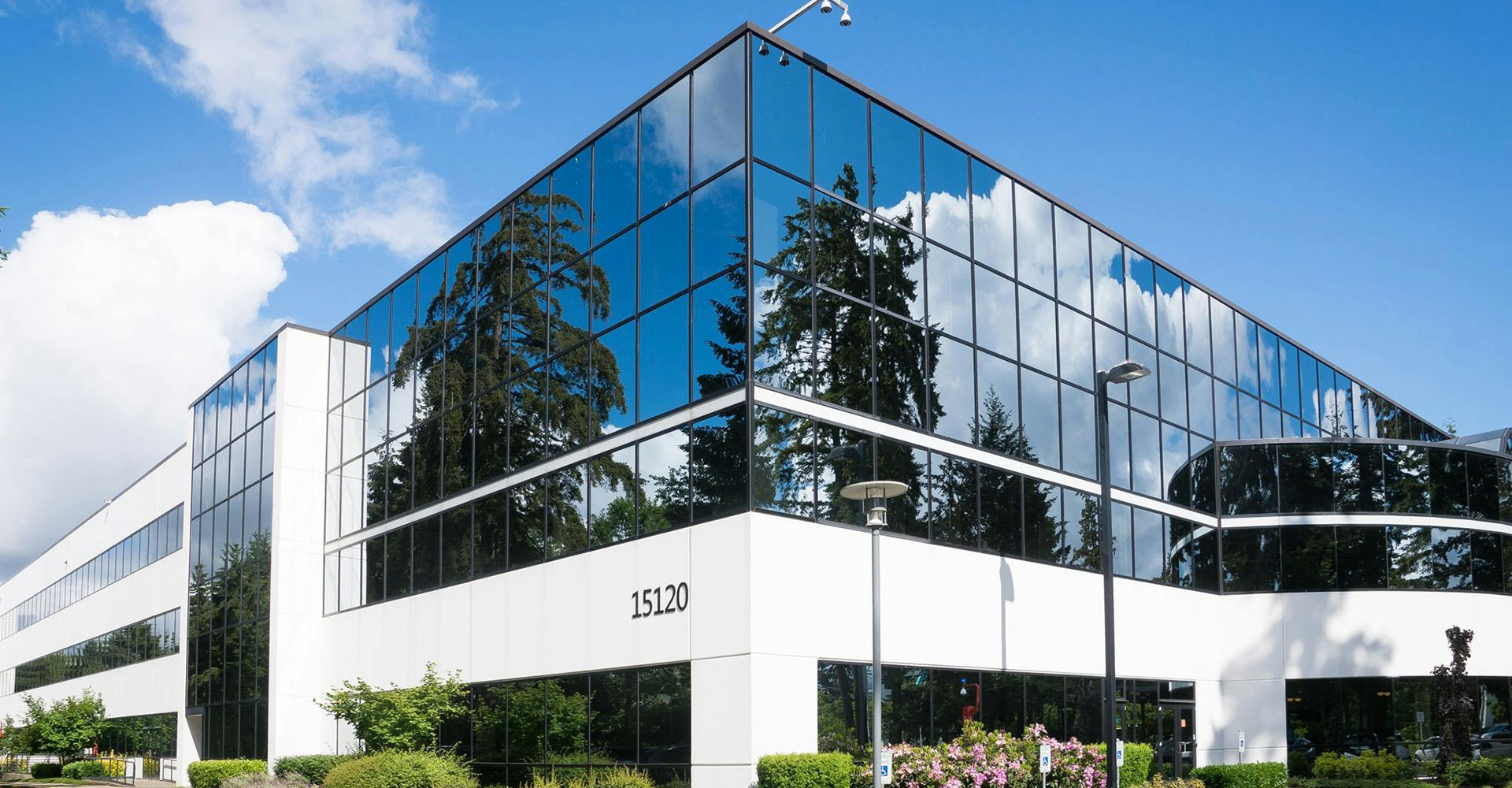A commercial property must be properly managed and maintained in order for a business to succeed. There are a number of risks that come with neglecting the maintenance of a property. Both a tenant and a landlord of a commercial property have responsibilities to uphold. There are a number of policies and procedures that must be followed when repairing or altering a commercial property. While this is not a complete list, these are some of the most common consequences of not following through with the management of a commercial property in New Jersey.
Failure to Follow OSHA Standards Has Consequences
The Occupational Safety and Health Administration, known commonly as OSHA, monitors businesses to ensure that safety standards are always upheld. OSHA outlines the rights and responsibilities of both workers and their employers. Businesses must follow OSHA protocol during commercial property construction and repair projects. OSHA safety inspections have led to a 26% reduced cost in on-site injury payouts. While some of OSHA’s standards may seem costly, investing in staff safety is well worth the investment. Failure to follow OSHA standards can be far more expensive than abiding by them.
One New Jersey business was fined over $71,000 due to nearly 30 safety violations. A different New Jersey business incurred penalties that totaled over $380,000. While many OSHA violations occur during construction, it is important to note that there are also OSHA safety standards that guide the repairs process. If you plan to properly maintain your commercial property, then you must be cognizant of OSHA’s various policies surrounding adjustments and repairs. It may be in your best interest to work with a property manager, a professional who can help schedule the minutia of repairing a property. Retaining a manager will ensure that your commercial property is not only properly maintained, but also that all construction, repair, and maintenance efforts are complicit with OSHA’s standards.
New Jersey’s Flood Problem
 Proactively maintaining your commercial property will save both money and energy. Commercial property owners that wait to repair a problem will often face costlier repair projects in the future. Proactive maintenance is cheaper than reactive maintenance. Since 1978, FEMA records show that New Jersey has received over $5.4 billion in flood-related payouts, the third highest state that requires aid due to flood damage (third only to Louisiana and Texas). Many property owners in New Jersey experience an average of two major floods within a ten-year period. Many of these damages originate from New Jersey’s coastal towns and cities, but flooding damages plague the entire state. In order to avoid wasting water and experiencing unnecessary levels of damage, maintaining your property and installing preventative flood measures should be a priority; otherwise, you may face thousands of dollars in repair costs. It is vitally important that you maintain your commercial property’s irrigation systems in order to minimize flood risk.
Proactively maintaining your commercial property will save both money and energy. Commercial property owners that wait to repair a problem will often face costlier repair projects in the future. Proactive maintenance is cheaper than reactive maintenance. Since 1978, FEMA records show that New Jersey has received over $5.4 billion in flood-related payouts, the third highest state that requires aid due to flood damage (third only to Louisiana and Texas). Many property owners in New Jersey experience an average of two major floods within a ten-year period. Many of these damages originate from New Jersey’s coastal towns and cities, but flooding damages plague the entire state. In order to avoid wasting water and experiencing unnecessary levels of damage, maintaining your property and installing preventative flood measures should be a priority; otherwise, you may face thousands of dollars in repair costs. It is vitally important that you maintain your commercial property’s irrigation systems in order to minimize flood risk.
In-ground irrigation systems control the amount of storm water runoff that accumulates on a property. Old irrigation systems can be aged by frost and snow. During the winter, water expands and freezes in pipes, which can cause pipes to wear down or burst. Failure to maintain these systems prior to the winter can lead to severe flooding in the spring. One EPA study found that an office complex was able to save money by increasing its irrigation systems’ water efficiency. The complex saved approximately 12.5 million gallons of water. Not only did this overhauled system reduce the complex’s environmental impact, but also it prevented irrigation flooding on the property. By improving a property’s irrigation system, you save both water and money. Be sure to frequently maintain your commercial property’s irrigation system in order to combat New Jersey’s flood risk.
Reduce Liability and Risk
Failure to maintain your commercial property can lead to bodily harm. The most common work-related cause of death or injury are falls, according to OSHA. 26% of all worker’s compensation claims are due to slip and fall injuries that occurred at work. Across the United States, these injuries cost approximately $13 million annually. Slip and fall cases can be caused by a number of circumstances; however, one of the largest causes is due to icy conditions. Injury as a result of non-maintained snow or ice can be costly. It is important to prioritize snow and ice removal on your commercial property, because this will make your property safer to navigate for both your employees and clients. Be sure to diligently document your snow and ice removal efforts, so that you can protect yourself in the event of an ice-related slip and fall case.
 After one New Jersey man slipped and fell in a parking lot due to icy conditions, he was awarded $2 million. This amount was awarded due to surgery that the man required on his neck and his back following the injury. In a different case, a New Jersey woman was awarded $2.25 million after sustaining injuries from slipping and falling in her employer’s commercial parking lot. Her fall resulted in permanent injuries to her back and knee. Her employer was found responsible for neglecting to clear ice on their property. While insurance can certainly assist a commercial property owner in navigating slip and fall coverage, taking preventative measures will be far more affordable than paying out a liability claim. Additionally, negative news covering injury that occurred on your commercial property may lead to a downturn in public favor. Maintaining your commercial property will do more than prevent injuries and liabilities – it will also prevent social media scandals.
After one New Jersey man slipped and fell in a parking lot due to icy conditions, he was awarded $2 million. This amount was awarded due to surgery that the man required on his neck and his back following the injury. In a different case, a New Jersey woman was awarded $2.25 million after sustaining injuries from slipping and falling in her employer’s commercial parking lot. Her fall resulted in permanent injuries to her back and knee. Her employer was found responsible for neglecting to clear ice on their property. While insurance can certainly assist a commercial property owner in navigating slip and fall coverage, taking preventative measures will be far more affordable than paying out a liability claim. Additionally, negative news covering injury that occurred on your commercial property may lead to a downturn in public favor. Maintaining your commercial property will do more than prevent injuries and liabilities – it will also prevent social media scandals.
Impact on Public Image
On a national scale, pressure from netizens can severely impact a business’ image. Social media makes sharing negative opinions or experiences instantaneous. In December 2017, it was reported that Apple throttled CPU speeds on older iPhone models. This caused applications to run slower. In addition, the battery drained much faster than on newer iPhone models. Apple claimed that this was due to the fact that lithium batteries naturally diminish in power over time. Consumers became irate, tweeting their complaints using the hashtag “batterygate” – a hashtag that has seen consistent use since the story first broke. Many consumers have used this event to promote switching to a competing cell phone operating system, Android.
Smaller-scale social media campaigns can have an effect on local businesses as well. An upstate New York resident started a Facebook page that shamed businesses that did not clear snow from their property in a timely manner. This page lead to negative press for a number of local businesses. The Facebook page also praised businesses that properly cleared their property, leading to an increase in public support for those businesses. Investing in maintaining your building will do more than satisfy local, state, and federal regulations: your business may be viewed in a more positive light by the general public.
Relationship with Landlord
Maintaining your relationship with your landlord is just as important as maintaining the commercial property itself. A common commercial property lease dictates that the tenant is responsible for most – if not all – maintenance and repairs on the property. Typically, the landlord is responsible for structural wear and tear as well as structural repairs. Tenants and landlords must both understand the terms of their contract so that the commercial property is maintained consistently. If a tenant fails to maintain the commercial property, then the landlord may have grounds for forfeiture or for terminating the lease, though these rely heavily on the state of the property’s disrepair. Tenants, too, are protected from landlords who do not hold up their end of the contract. When a landlord does not repair something on the property, it is important to work with them to find a resolution.
Withholding rent payment is a tactic that some tenants use to encourage their landlord to hasten a repair process; however, this is not a wise decision. In a residential property dispute, Real Housewives of New Jersey star Joe Gorga won a case against a tenant who was withholding rent, claiming that Gorga failed to repair the home in a timely manner. The case resulted in the tenant owing over $23,000 to cover the cost of late fees and rent. Regardless of a landlord’s inaction, rent must be paid, as stated by a commercial property lease. By not maintaining a commercial property, you can face legal fees. The process of retaining a lawyer, potentially paying a settlement, and paying for court fees can become very expensive. Be sure to understand the terms of your lease, which will dictate who is responsible for maintenance and repair projects on the commercial property.
Failure to maintain and manage a commercial property has a myriad of ramifications. If you do not follow proper safety standards, then you may risk harming construction staff, employees, or clients. OSHA standards should be followed at all times. Be sure to be wary of New Jersey’s unique flood problem, and invest in proper, energy efficient irrigation equipment. Consistent maintenance will prevent the risk of injury on your property. By maintaining your property, your business’ public image will improve. Do not neglect the tenant-landlord relationship, either. Remember: proactive maintenance will be more affordable than reactive repairs.

